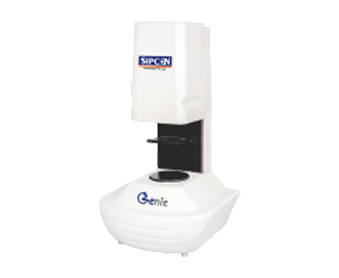Do you mostly deal with electrical wires? Trust only an accurate wire insulation thickness measurement! It is not only the metal conductor that matters when you work with electrical cables. The insulation that surrounds the metal wire is equally important. This insulation layer protects the flow of electricity and ensures safety.
Accurate measurement of insulation thickness results in a safe and reliable electrical connection. Make sure to pay attention to insulation thickness. Need more detailed information before purchasing wires? This article is your ultimate guide!
Why Accurate Measurement of Wire Insulation Thickness Matters
Accurate measurement of wire insulation thickness is vital for several reasons. The major ones are as follows:-
- Safety is the Top Priority
The insulation acts as a barrier between the electrical current and the outside environment. There is a risk of electric shock if the insulation is too thin. Accurate measurement ensures the insulation meets safety standards.
- Preventing Electrical Failures
Proper insulation thickness prevents wires from connecting with other wires which can cause short circuits. Even a small gap in insulation can lead to costly and safety hazards.
- Meeting Industry Standards
Different industries have clear rules and regulations about insulation thickness to ensure quality and safety. Measuring insulation thickness accurately helps comply with these standards.
- Improving Wire Longevity
Insulation protects wires from physical damage. Wires can wear out faster or get damaged easily if the insulation is inconsistent. Accurate thickness helps maintain wire durability over time. This helps to boost wire lifespan.
- Consistent Product Quality
Reliable insulation thickness ensures that every wire performs reliably. It reduces defects and customer complaints. As a result, it delivers steady product quality.
How Wire Insulation Thickness Affects Electrical Performance
Insulation thickness affects how well a wire carries electricity. The following points show how proper insulation helps maintain safety and efficiency:
- Preventing Electrical Leakage
Thick insulation keeps the electric current flowing inside the wire without leaking out which prevents energy loss and hazards. This ultimately helps to reduce leakage in currents.
- Heat Resistance
Adequate insulation thickness protects the wire from overheating by managing the heat generated during electrical flow. It ensures thermal stability.
- Reducing Interference
Proper insulation helps block electrical interference which ensures clear signal transmission in communication wires. Thus, it helps to prevent signal disturbances.
- Mechanical Protection
Thicker insulation shields the wire from physical damage caused by bending or external forces which ensures consistent electrical performance. It acts as a shield from wear and tear.
Choosing the Right Measurement Tools for Wire Insulation Thickness
Measuring wire insulation thickness accurately is important. Here are some common tools that help to measure insulation thickness:-
- Mechanical Micrometer
This is a simple tool with a screw mechanism that measures thickness with high precision. It is best for wires with thin insulation and is easy to carry and use.
- Digital Thickness Gauge
This modern tool provides quick digital thickness readings. It is user-friendly and popular in quality control processes when many measurements are needed.
- Ultrasonic Thickness Gauge
This advanced tool uses sound waves to measure insulation thickness without coming into contact with the wire. It is useful when wires should not be damaged.
- Optical Measurement Systems
These use specialized software to measure thickness with high accuracy and speed. They are often used in manufacturing plants for large volumes of wire.
Selecting Wire Insulation Measurement Tools Made Simple
Make your wire insulation measurement tool selection easier by considering these vital factors:-
- Required Accuracy
Simple tools may be enough for general use. More precise tools are preferred for critical applications.
- Ease of Use
Choose tools that are easy to operate and come with clear instructions if you are new to wire measurement.
- Cost
Measurement tools range from affordable devices to expensive automated systems. Pick one that fits your budget while meeting your accuracy needs.
- Type of Wire and Insulation
Some wires require non-contact measurement to avoid damage while others can be measured with contact tools.
Effective Tips When Considering Wire Insulation Thickness
- Ask for Specifications
Always ask the manufacturer for the wire’s insulation thickness specifications. Compare these with industry standards to ensure quality.
- Request Measurement Reports
Request test reports that show accurate insulation thickness measurements for large orders.
- Check Industry Standards
Familiarize yourself with relevant standards for your application. This helps you understand the minimum required insulation thickness.
- Choose Trusted Suppliers
Buy wires from reputable brands that guarantee consistent quality and provide technical support.
- Consider Your Application
The required insulation thickness varies based on how and where you will use the wire. Choose the appropriate wire as some applications may require thicker insulation.
- Use the Right Measurement Tools
Invest in reliable tools and learn how to use them properly. Always utilize the correct measurement tools.
Conclusion
In conclusion, wire insulation thickness measurement is essential for ensuring safe and reliable wiring. Find out why accurate measurement of wire insulation thickness matters. Knowing this will enable you to select wires that that suit your needs and adhere to industry regulations.
Always check the insulation thickness when buying wires and do not compromise on safety or quality. Be confident your wires will perform well and last longer by investing in the right cable insulation thickness system!













